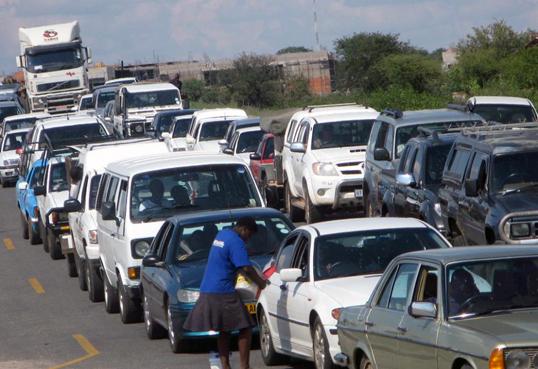The Musina ring road will alleviate severe traffic congestion in the Musina central business district (CBD) once it is completed in the second quarter of 2022. Travel time for the road users travelling in and around Musina is expected to be reduced significantly, the South African National Roads Agency SOC Limited (SANRAL) has said.
The project consists of the construction of approximately 8.0km of greenfields single carriageway freeway to form the western ring road around the town. The alignment deviates from the existing N1 section 29 alignment just south of Musina and ties back into the existing alignment just north of the town.
Thousands of heavy vehicles use the N1 every day and pass through the Musina CBD. These vehicles also add to the traffic congestion in the town and create conflict with local traffic and pedestrians. “Once completed, the Musina ring road will facilitate mobility, safe movement of goods and services in and around Musina,” says Hennie Kotze, SANRAL’s project manager.
Kotze says that the R640-million project is progressing well. The stormwater infrastructure is complete as well as the majority of the earthworks. Except for the Nancefield interchange bridge, the other bridges are at advanced stages of completion. The contractor is currently progressing with layer works and surfacing.
Read: Gauteng Roads and Transport Urges public transport Operators to Step Up COVID Preventative Measures
“Apart from COVID-19 related restrictions which are proving to be a challenge not on the Musina ring road project alone, but on other projects managed by SANRAL across the country, we are confident about the anticipated June 2022 completion date, provided there are no further delays,” he adds.
The project provides access to opportunities for local community members and small, medium and micro-enterprises (SMMEs). Fourteen targeted enterprises from the Musina municipal area are currently employed to participate in the project.
“Up to 12% of the R640-million contract value will be allocated to targeted enterprises, of which 10% will be allocated to women-owned companies. The contractor has exceeded the 12% and is currently standing at 14%,” says Kotze.
“There is also a contractual requirement to employ local labour, often referred to as targeted labour, to the value of 6% of the contract value. 30% of this value must be used on women and youth labour each.”
SANRAL recognises that it can help to build a capable and developmental state and drive economic development through the provision and maintenance of critical infrastructure.
The Musina ring road project showcases how this is coming to life. Local businesses and communities will access employment through this project, as well as opportunities to tender for sub-contracting.







